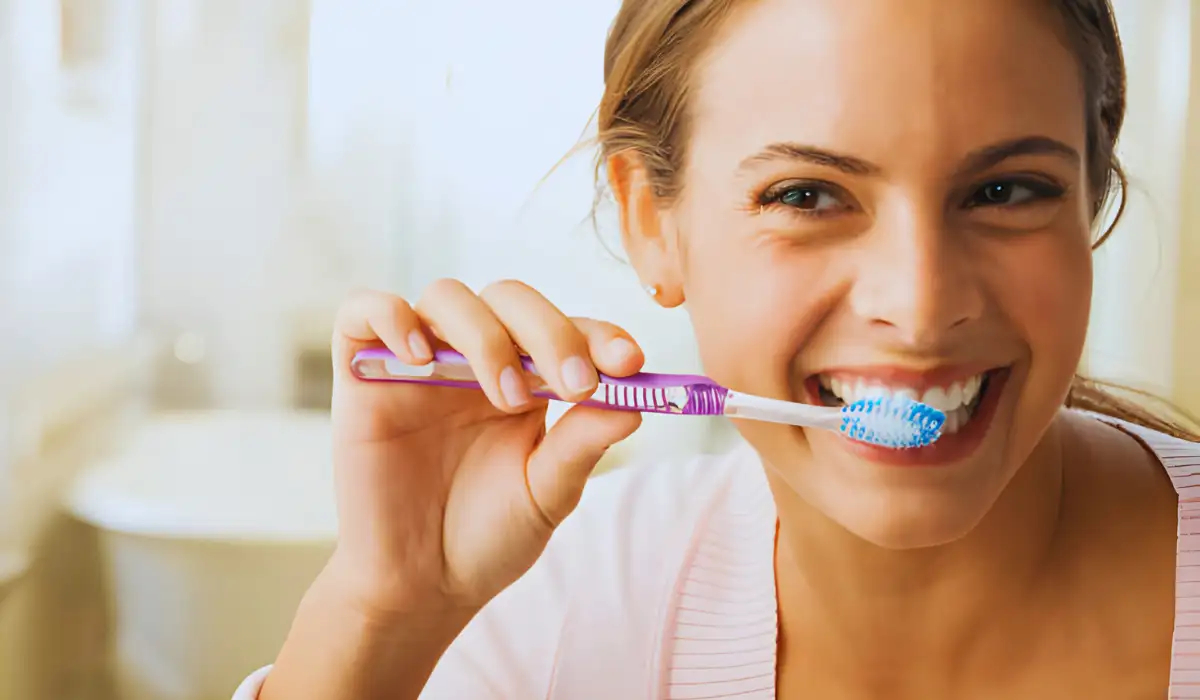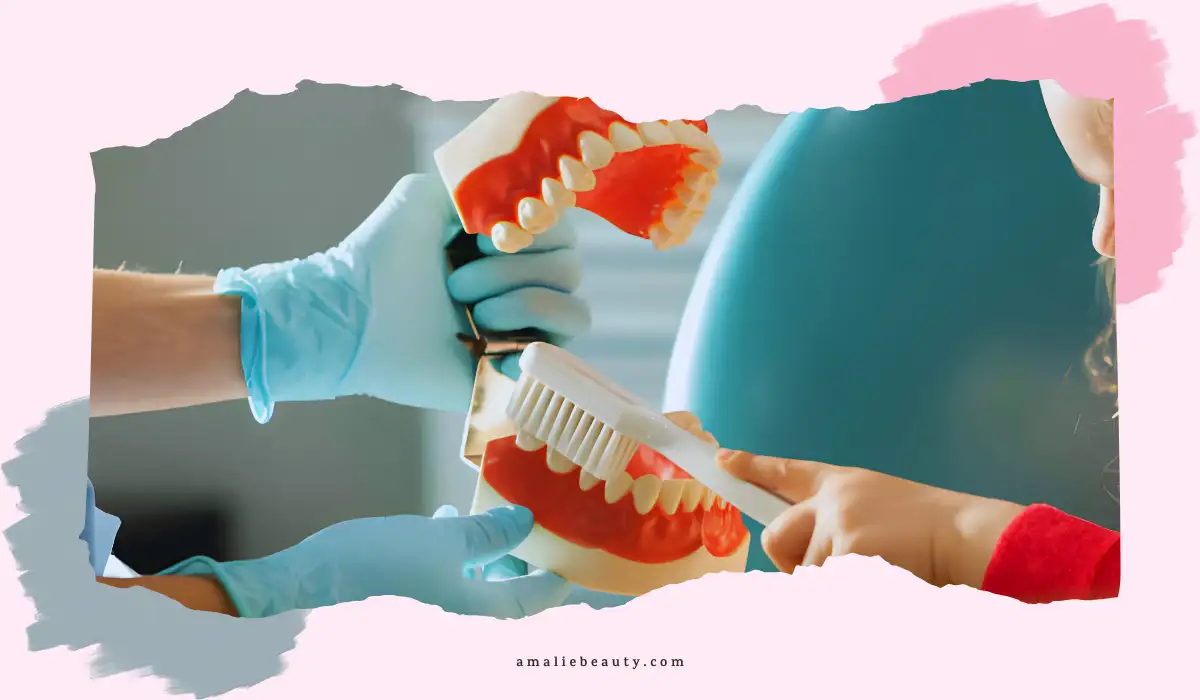Oral hygiene forms a critical part of the general wellness of a person. Their best practices play an integral role in helping prevent dental problems and thus help maintain an appealing smile.
The following are key steps and best practices to ensure the most thorough and effective oral hygiene.
Brushing Technique: The Art of Gentle Precision

The basis of any effective oral hygiene regimen lies in how to brush. A fluoride drip is recommended along with a soft-bristle toothbrush.
Make sure to brush your teeth at least twice per day, for each session of not less than two minutes. Ensure to clean the entire surface of your tooth gently using a circular approach for comprehensive coverage of all parts.
Pay special attention to the gumline and between the teeth, because this is a place where usually plaque collects.
What are the best ways to practice good oral hygiene?
Keeping your mouth clean is crucial to your general health. Learn about the best oral hygiene practices, such as using a balanced diet, getting regular dental checkups, and brushing and flossing correctly. Find out how these routines support a confident and healthy smile.
➡️ Flossing Regularly
While brushing targets the visible surfaces of your teeth, flossing is indispensable for reaching the often-neglected spaces in between. Make flossing a daily ritual to eliminate plaque and debris that your toothbrush may miss.
The correct flossing technique involves delicately sliding the floss between each pair of teeth, curving it around the contours of each tooth, and reaching beneath the gumline.
➡️ Mouthwash as a Supplement
Improve oral hygiene using antibacterial or fluoride mouthwash. Mouthwash helps brush and floss reach missed areas. The essential element lowers harmful microorganisms, strengthens enamel, and prevents cavities.
Not replacing brushing and flossing, mouthwash should supplement them. This approach to dental health is holistic, with each part contributing to good oral hygiene.
Recognition as an adjunct underlines mouthwash’s contributions to your routine, promoting full dental care. Add mouthwash to your dental routine for extra protection and overall support.
➡️ Proper Nutrition
Dental health depends on diet. A variety of nutrient-rich meals is crucial for balance. Limit sugary and acidic meals, which erode enamel and harm teeth. Too much sugar causes oral bacteria to create acids that destroy tooth enamel.
Erosion may cause cavities and other tooth problems. Thus, dental health requires limiting such meals. A diet rich in nutrients may promote oral health. Consuming fruits, vegetables, dairy, and lean meats offers calcium, phosphorus, and vitamin D.
Strong teeth and gums need these nutrients. Calcium builds and maintains healthy teeth, while phosphorus helps the body utilize it. Vitamin D aids tooth calcium absorption.
➡️ Hydration and Saliva Production
Hydrating regularly is important for dental hygiene and wellbeing. Adequate water intake improves dental health and thirst. Regular water intake generates saliva, a defense.
Saliva aids dental health. Removes harmful microorganisms, neutralizes oral acids, and remineralizes teeth. A dynamic process reinforces tooth enamel, preventing decay and damage.
Saliva maintains oral health whereas hydration minimizes dry mouth. Dry mouth hurts and breeds germs. Bacteria without saliva may cause bad breath and cavities.
➡️ Regular Dental Check-ups
Good oral health requires regular dental exams and cleanings. Expert dental cleanings remove stubborn plaque and tartar at regular appointments.
This prevents cavities and gum disease. Dental professionals can reach hard-to-reach areas during routine treatment. Plaque and tartar removal throughout these sessions prevents dental problems and preserves teeth and gums.
Regular dental checkups are also included to preserve oral health. They allow your dentist to spot irregularities early, avoiding further issues. Early detection of cavities, gum inflammation, and other dental disorders helps you and your dentist avoid more invasive treatments.
➡️ Implementing Natural Remedies
Traditional oral hygiene and natural remedies may enhance dental care. Coconut or sesame oil pulling, a traditional dental therapy, is gaining popularity.
Although natural dental treatments cannot replace conventional care, they lessen inflammation and combat infections. Swishing a little oil about the lips for 15-20 minutes is called oil pulling.
This method may remove oral bacteria, toxins, and waste. Coconut oil’s antimicrobial properties may enhance tooth hygiene. Sesame oil, another favorite, lowers plaque and gingivitis.
While oil pulling may enhance oral health, it should not replace brushing, flossing, and professional dental cleanings. Instead, it supplements oral health.
Holistic oral care includes oil pulling and other natural remedies. These oral health promotion methods are complementary. Such practices may appeal to individuals seeking alternative dental treatment or a holistic health approach.
➡️ Stress Management
Stress may promote teeth grinding (bruxism) and other negative behaviors, which are undesirable for oral health. These effects may be mitigated by balanced stress management.
Yoga, meditation, and mindfulness may protect tooth health from stress. Stress may promote teeth grinding, which wears down enamel and causes jaw pain.
Practicing stress management may avoid these inclinations. Mindfulness reduces stress and unintentional teeth grinding. Meditation reduces stress and improves attention.
Meditation may decrease stress and improve oral health. Breath control, moderate movements, and relaxation alleviate tension in yoga. Yoga improves dental health by reducing stress-related tooth and jaw damage.
Conclusion
A comprehensive attitude towards oral care entails proper brushing and flossing techniques, regular dental visits, observing good diet, and proper choice of oral care products.
So you can add some natural remedies and stress management techniques to your routine for better overall oral health.
By following these best practices continuously, you create opportunities for your teeth, gums, and a great smile that lasts years of your life.
References
- Taking care of your teeth and mouth. (2015).
https://www.nia.nih.gov/health/taking-care-your-teeth-and-mouth - Information from the U.S. Department of Health and Human Services Office on Women’s Health answers questions about women’s oral health, including oral health and pregnancy.
https://www.womenshealth.gov/a-z-topics/oral-health

